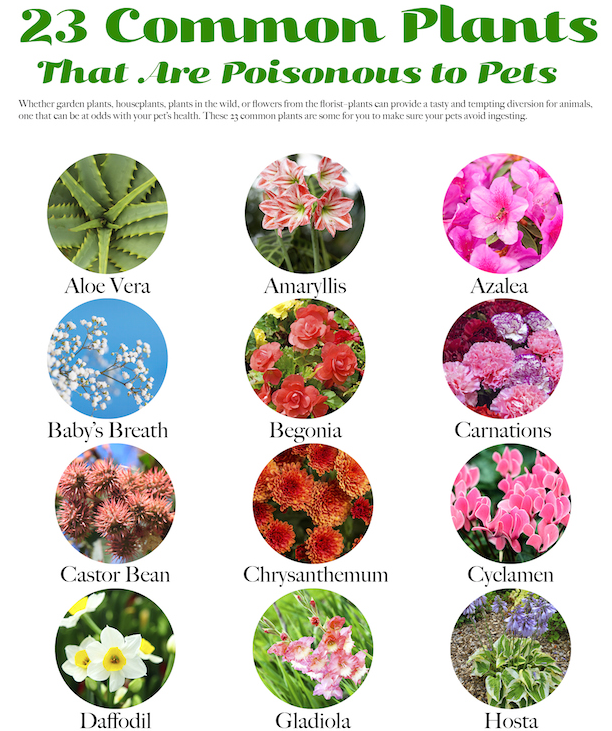Deadly plants for your pets
With Spring sprouting and flowers blooming it's time to get out and plant that beautiful garden. But keep in mind there are several outdoor and house plants that are toxic to pets. Here are some of the plants to be careful of having your pets too close.
Lillies-The whole plant is toxic to animals. Cats are exceptionally susceptible to toxicity. Symptoms are- vomiting often with pieces of the lily, and signs associated with kidney failure, including disinterest in food, vomiting, depression and no urination. Seek veterinary attention immediately.
Marijuana- Toxin is Delta-9-THC Symptoms are depression of the central nervous system and in coordination, drowsiness or excitation, as well as vomiting, diarrhea, drooling,increased heart rate, and even seizures and coma. Seek veterinary attention immediately.
Cyclamen- All of the plant is toxic, however, the highest part of concentration of the toxin is in the root portion of the plant. Symptoms include significant gastrointestinal irritation, including intense vomiting,drooling and diarrhea. Fatalities have also been reported due to heart rhythm and abnormalities and seizures.Seek veterinary attention immediately.
Sage Palm- Toxin- Cycasin. All parts of Cycas Revoluta are poisonous but the seeds and nuts contain the largest amount of toxin. The digestion of just one or two seeds can result in very dangerous effects. Symptoms include Vomiting, diarrhea, black or bloody stools, bruising, yellow discoloration to skin, seizures and liver failure. Seek veterinary attention immediately.
Tulips- toxin- Tulipalin A and B the bulb portions contain the most toxin. Symptoms are- intense gastrointestinal irritation, drooling loss of appetite,vomiting and diarrhea, depression of the central nervous system, convulsions, and cardiac abnormalities. Seek veterinary attention immediately.
Azalea-Toxin- Grayantoxin Symptoms- vomiting, drooling, diarrhea, weakness, loss of coordination, and depression of the central nervous system, Severe poisoning could lead to coma or death from cardiovascular collapse. Seek veterinary attention immediately.
